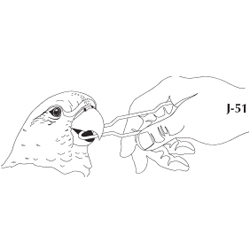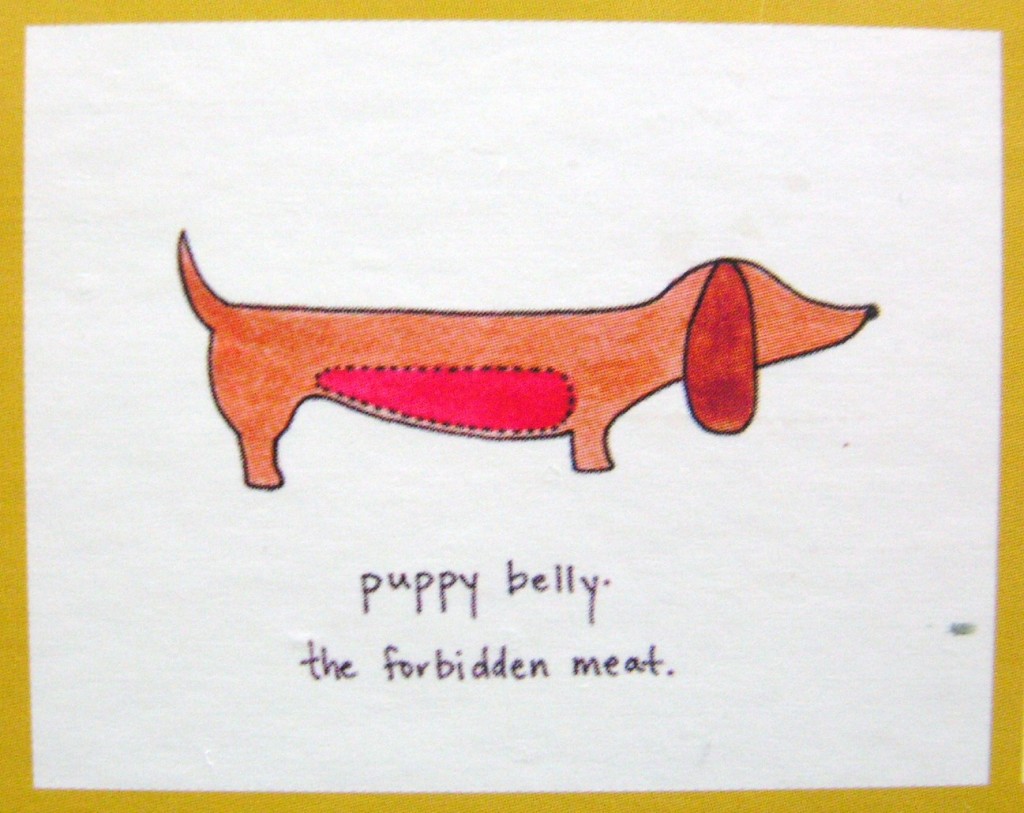This is Sir Percy Bird.
And me. I'm there, too.
I have had Sir Percy since I was 9 years old, and he was <1.
He is now 16. That is a lot of years we've been together.
When I was young and foolish, my siblings and I used to play "birdie ball" where we would sort of chuck him across the living room to make him fly back and forth between us. He still lets me hold him now, so hopefully he's mostly forgiven me. I'm sorry, Pretty Bird.
"It's okay."
Once, Sir Percy was walking along the floor and Dad rolled over his little foot with a computer chair. He's been missing that one back claw for years now since it happened. But he still climbs up and down his cage with ease. The top is his favourite place to take a little snooze.
Zzz.
Until some jerk comes along and wakes him up with a camera.
My parents originally promised me I could have a bird to prove I was responsible enough to have a dog. But, as it turned out, my great Aunt Carolyn and Uncle Mike found our perfect dog for us a few months before I'd even gotten Sir Percy. We all trekked out to their gorgeous farm on the Tennessee river and what they'd tried to convince my Dad of over the phone was made abundantly clear in person--yes, a German Shepherd could be the perfect family dog for four young children.
Playing during a rare snow in TN.
Exploring the new PA neighbourhood with Ben.
She even attended a creeking at GCC during my college years.
Cani and Annabelle.
She remained the best dog until she died in 2011 at age 13, and now there is a dog-shaped hole in my heart, waiting for the time and space to to fill it again.
But anyhow, after getting Cani-dog all those years ago, my parents decided they'd still get me a bird, so I received Sir Percy for my 9th birthday a few months later. He was hand-raised by a breeder in Jackson, TN, and Dad went and watched that batch of babies for an afternoon one day before picking out Sir Percy to be my companion.
He was a pretty great pet. I mean, other kids didn't have little parrots, and I did. It was awesome.
Sir Percy has witnessed a lot in his time with me, and quite a few pets have come and gone since he's been here. We've had a random variety of snakes, a few turtles (including a little snapper!), a couple goldfish, and some wildlife.
He ignored Weepers, a sparrow I raised.
"Why is that thing here?" he said. "Who even keeps birds as pets? Ugh."
I don't recall him having any animosity towards my squirrel, though.
Me and T.J., both of us still young.
Sir Percy lived through encounters with a number of cats.
Figwit, who liked jumping on the side of his cage and trying to pull it down.
"Just one little taste? Pleaassee?"
Betsy's little kitty, Gillie of Ockham
Guen
Tiny Kitty
Sir Percy has also had to accustom himself to me acquiring a husband, and said new husband's pet, Rad Cherenkov, the beta fish.
So Sir Percy moved to the city with me.
He was fine with the husband.
New perches are always welcome.
He met Rad, decided he wasn't worth bothering about, and never mentioned him again.
Rad is basically a flower that swims around.
Rad, for your information, is almost 4 years old. He is a very hardy beta fish.
Well, I've been trying to read more about cockatiel care on my own, but going to Vet Tech school has opened my eyes to a lot more information that you can't get just by googling "cockatiel care." I decided Sir Percy should probably go to the vet. One of my favourite professors works with exotics and large animals, and when I approached her about it, she recommended a couple clinics nearby. I picked one, made an appointment, and today Garrett and I took Sir Percy to the vet for the first time in 16 years.
I learned a lot.
Firstly, while it's good to fast dogs and cats before vet visits in case they need bloodwork, it is not good to fast cockatiels because they'll tend to hypoglycemia.
Secondly, I learned how a healthy cockatiel's body should feel, and where natural little divets are, and how to tell if the cockatiel has fatty liver disease (a common complaint). Sir Percy has a perfect little body, with no signs of fatty liver disease.
Thirdly, I learned there is this thing called the "choana." It's sort of the nasophanyngeal opening, but it also consists of lymphatic tissues dangling from the top. Basically, it's cockatiel tonsils. In birdies, you want it to be spiky-looking. If they're blunt and dull, it would indicate bad diet and immune issues.
See the little tooth-like things? That's what I'm talking about, and they should look like that.
The vet showed me Sir Percy's choana, and, much to my disbelief, his are super sharp and pointy and not dull at all. So now all I can think about is---did dinosaurs have choana? Like, it wasn't enough they had dinosaur teeth... even their little throat lymph tissue needed to look like teeth?
I think we're going to need a bigger speculum.
See figure J-51.
The vet also commented how nice Sir Percy's crest looks. Usually they're kind of sparse and short by his age. This surprised me, since I'd thought Sir Percy's crest looked a bit ratty. But no, the vet thought it was super fine, even though it bends off to the left a bit.
Super fine neck feathers.
I decided to get him tested for psittacosis (a fairly expensive test, but the disease is zoonotic). I mean, it's been 16 years, but I figured we might as well do it right. We'll get the results from that in a week and a half.
Fourth thing I learned: the vet said that because Sir Percy is so old, he's probably set in his ways, and he wouldn't recommend getting him a birdy buddy, because he probably thinks he's part of our flock and doesn't recognize that he's a bird (which explains why he didn't know what to do with Wheepers). So I guess we're off the hook for that. I do think I want to invest in a new cage for him, though. This one is as old as he is, and actually looks its age, unlike Sir Percy, apparently.
Fifth thing I learned: I love exotics medicine and I definitely want to try to pursue that in addition to large and companion animal medicine.
Sixth thing I learned: Sir Percy weighs 77grams, a nice midway between the 70-85g the vet usually sees in cockatiels. When the vet first saw Sir Percy he thought he was going to be overweight, because he's fluffy-looking, but nope! Healthy birdy weight.
In the end, the vet was awesome, and gave us almost a 50% discount because I'm a Vet Tech student. Yay! Basically, he just charged us for the psittacosis test they have to send out. Sir Percy will be getting yearly check-ups there from here on out, and I'm thinking perhaps I could see about developing a relationship with this practice and either working there, or making other exotics connections through them.
And once I know Sir Percy is cleared of possibly having psittacosis, he can go back to his favourite past-time--cleaning people's teeth.
"Yum. Let's see what we've got back here..."


























